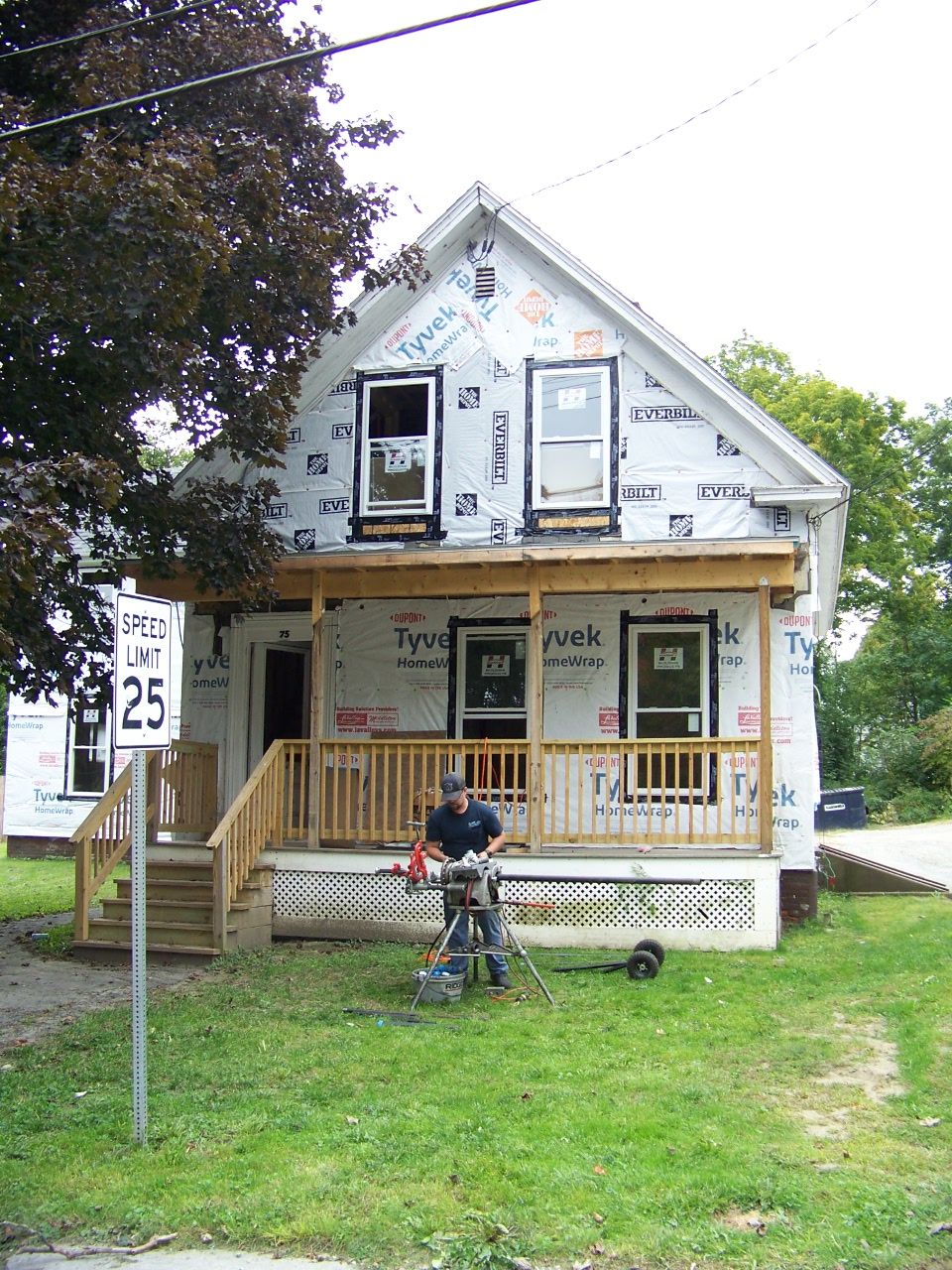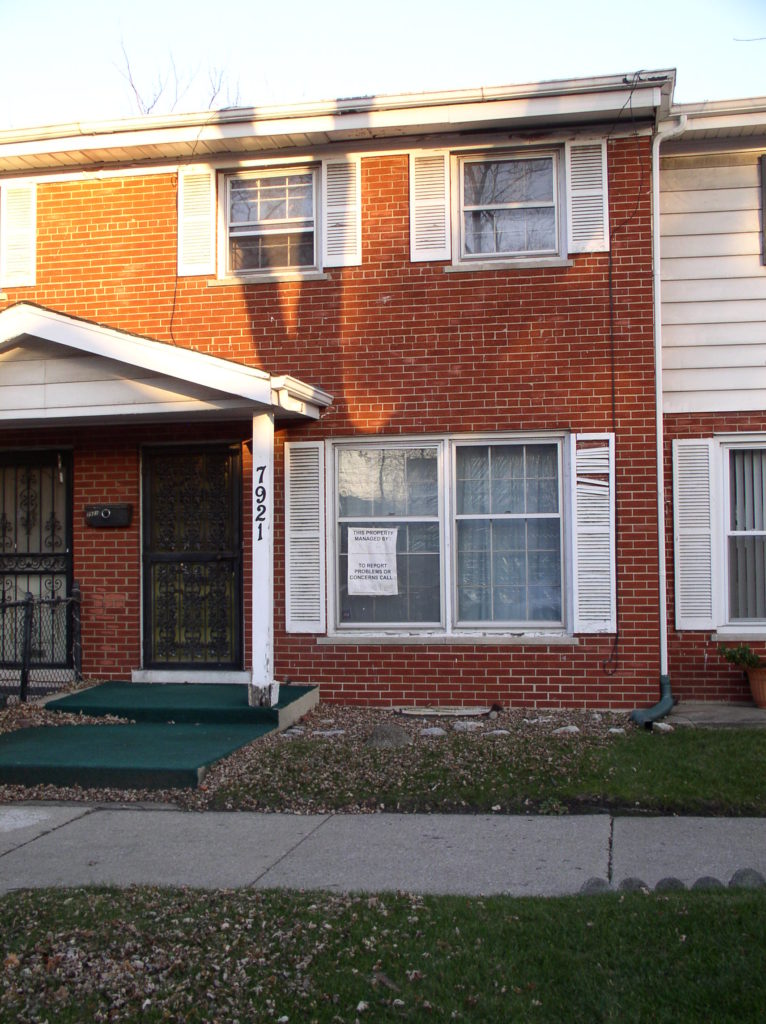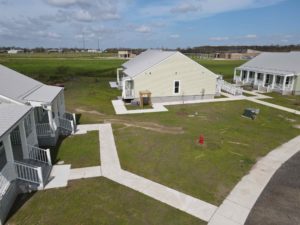
In Louisiana, Gulf Coast Housing Partnership built housing to resist storms.
NeighborWorks network organizations help residents build strong communities. When disaster strikes, NeighborWorks affiliates jump in as part of the effort to rebuild homes, business and lives. The Red Cross, FEMA and other first responders are on the scene right away. But network organizations, too, focus on ways to help. In the Southern Region alone (the NeighborWorks America service area that covers Maryland to Florida), organizations responded to Hurricane Ida, tornadoes in Alabama and tornadoes in Kentucky during 2021. When not responding to recovery needs, they work to prevent disasters before they happen, as when Louisiana’s Gulf Coast Housing Partnership worked to build hurricane-resistant housing.

Gulf Coast Housing Partnership finished its project just as Hurricane Ida hit the region.
In Kentucky last winter, NeighborWorks organizations worked to contribute money and find other ways to support displaced families. “In Bowling Green, we’re trying to get families out of a hotel as soon as possible and there are no affordable rental units,” says Brenda Weaver, president of Housing and Lending for Community Ventures. In nearby communities like Mayfield and Dawson Springs, there are no hotels for people whose homes were demolished by the storm.
One way nonprofits assist with rebuilding is by raising money, collecting clothing and household supplies. Community Ventures staff members volunteered to help residents fill out FEMA applications. And the organization is sponsoring an ekō home, a sustainable container with utilities, internet and furnishings, to house a family for a year.
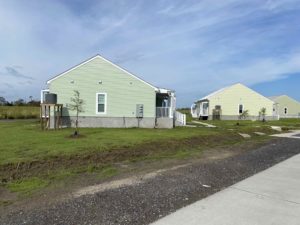
GCHP’s new development, under clearer skies.
As NeighborWorks network nonprofits work to help the community, they worry about the impact of pandemic-related price increases on homes and materials. In addition to the high cost of housing, nonprofit community development and housing organizational infrastructure in the parts of the state that saw the most damage are overwhelmed. “There’s more demand for repair and construction work than they have the capacity to meet,” Boyatt says. “Many of them were, themselves, impacted by the storms, and they face the daunting challenge of rebuilding much of their existing stock of homes while also responding to the surge in new need for financially-accessible housing from displaced residents.”
Fahe is looking at new ways to offer volunteer services, repair and rehab services, counseling and loan information services and more. They’re also seeking support for a full-time staff position on the ground in affected communities to serve as a liaison and coordinator.
